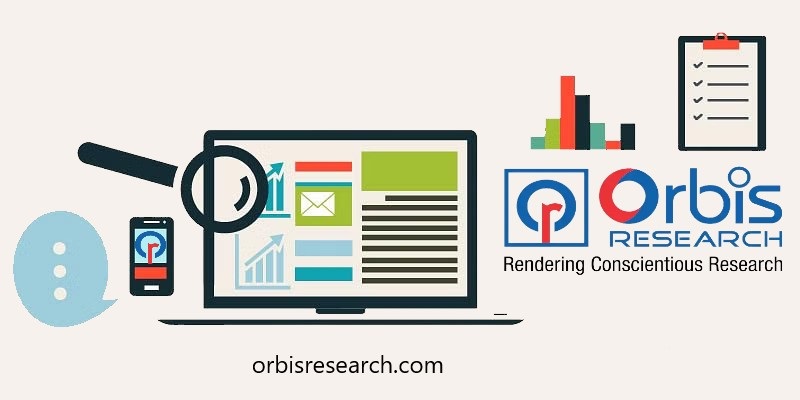
Press Release, Orbis Research 1. Introduction
The Financial Analytics Software market report provides a comprehensive analysis of the Financial Analytics Software market, covering definitions, the impact of rising geopolitical tensions, market segmentation, product pipeline, competitor landscape, growth opportunities, and a special strategic guide for beginners.
Request a sample report @ https://www.orbisresearch.com/contacts/request-sample/7279894
2. Market Definition
The Financial Analytics Software market refers to the industry involved in Financial Analytics Software sector or product, including brief description of products/services. This sector is crucial due to its significance like economic impact, technological importance, etc. The market is characterized by key features such as innovation, consumer demand trends, etc.
3. Impact of Rising Geopolitical Tensions
3.1 Overview Rising geopolitical tensions have had a profound impact on the Financial Analytics Software market. Key areas of influence include: -Supply Chain Disruptions: Geopolitical conflicts and trade disputes have caused interruptions in global supply chains, impacting the availability and cost of raw materials and components.
– Market Access and Regulations: Trade barriers and sanctions have altered market access and regulatory requirements, affecting international operations and expansion strategies.
– Investment Flows: Geopolitical instability can deter foreign investments and impact capital flows into the market, influencing growth prospects and innovation.
3.2 Regional Impacts – North America: Increased scrutiny and regulatory changes have affected cross-border trade and investment.
– Europe: The ongoing geopolitical tensions have led to shifts in market dynamics and strategic realignments.
– Asia-Pacific: Regional conflicts and trade wars have affected supply chains and altered market strategies.
Financial Analytics Software market Segmentation by Type:
Cloud-based
On-premise
Financial Analytics Software market Segmentation by Application:
Large Enterprises
SMEs
Direct Purchase the report @ https://www.orbisresearch.com/contact/purchase-single-user/7279894
4. Market Segmentation and Product Pipeline
4.1 Segmentation The Financial Analytics Software market can be segmented based on various criteria: – By Product Type: major product types or categories.
– By End-Use Industry: key industries using the products
– By Geography: Regions or countries with significant market presence
4.2 Product Pipeline The product pipeline in the Financial Analytics Software market reflects ongoing innovation and development.
Key trends include:
– Emerging Technologies: Advances in specific technologies, e.g., AI, IoT, etc. are driving new product developments.
– Consumer Trends: Shifts in consumer preferences are leading to the creation of new, tailored products.
– Regulatory Changes: New regulations are driving the creation of products that are both compliant and sustainable.
Key Players in the Financial Analytics Software market:
IBM
Oracle
SAP
TIBCO Software
Fair Isaac Corporation
SAS Institute
Zoho Corporation
Alteryx
Teradata
Qlik
GoodData
MicroStrategy
Tableau Software
Rosslyn Data Technologies
5. Competitor Analysis
5.1 Key Players The Financial Analytics Software market features several prominent players, including: – Company A: Known for key strengths, e.g., technological innovation, market share, etc.
– Company B: Focuses on specific product lines, market strategies, etc.
– Company C: Distinguishes itself through unique selling points, regional presence, etc.
5.2 Competitive Strategies – Innovation and R&D: Leading companies invest heavily in research and development to stay ahead of technological trends.
– Market Expansion: Companies are expanding their geographical presence to tap into emerging markets.
6. Growth Opportunities
6.1 Emerging Markets Asia-Pacific: The region’s rapid economic growth and rising consumer spending offer substantial opportunities. – Latin America: Growing infrastructure development and rising middle class offer potential for expansion.
6.2 Technological Advancements – Digital Transformation: Adoption of digital technologies is driving efficiency and creating new business models.
6.3 Consumer Trends – Customization: Consumers are seeking personalized solutions, driving demand for tailored products and services.
Do You Have Any Query Or Specific Requirement? Ask to Our Industry Expert @ https://www.orbisresearch.com/contacts/enquiry-before-buying/7279894
7. Special Edition: Strategic Guide for Beginners
7.1 Market Entry Strategies – Market Research: Conduct thorough research to understand market needs, trends, and competitive landscape.
– Local Partnerships: Establish alliances with local players to effectively navigate regulatory environments and cultural differences. – Adaptation: Tailor products and strategies to meet local demands and preferences.
7.2 Risk Management – Diversification: Spread risk by diversifying product offerings and market presence.
7.3 Investment Considerations Capital Allocation: Invest strategically in areas with high growth potential, aligning investments with market trends. Long-Term Planning: Create a strategic plan that integrates both short-term goals and long-term objectives to support sustained growth.
About Us
8. Summary
The Financial Analytics Software market is characterized by its rapid evolution, influenced by technological advancements and geopolitical dynamics. Understanding market segmentation, staying ahead of competitors, and capitalizing on growth opportunities are crucial for success. For beginners, a strategic approach that includes thorough research, effective risk management, and smart investment will be key to navigating this complex market landscape.
Contact Us:
Hector Costello
Senior Manager – Client Engagements
4144N Central Expressway,
Suite 600, Dallas,
Phone: +1 (972)-591-8191,
Email: sales@orbisresearch.com